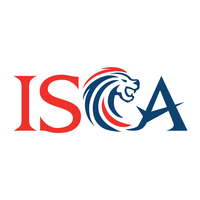The Complaint Process
Upon receipt of a written complaint with supporting documentary evidence, the following steps of the complaint process take place:
- Acknowledgement of the complaint in writing.
- Review of the complaint and supporting evidence to determine the following course of action:
- The Chief Executive Officer may try to resolve the complaint by mutual conciliation if this arises as a result of misunderstanding or lack of communication. Upon successful resolution, the case will be considered as closed. If such complaint cannot be resolved by mutual conciliation, it will be treated as a formal complaint and referred to the Investigation Committee.
- The Institute will determine if a statutory declaration and/or a deposit for the sum of $1000 is required.
- The Investigation Committee will investigate the complaint for the purpose of determining if there is a prima facie case for it to be referred to the Disciplinary Committee.
- The Investigation Committee may require the member concerned or the complainant to answer any question in writing or furnish any document or information that it considers relevant to the investigation within 14 days of the date of request.
- If the Investigation Committee makes a finding that there is a prima facie case against the member concerned, it will lay the case before the Disciplinary Committee.
- The member concerned will be given 14 days notice of the date, time and place of the formal hearing of his case by the Disciplinary Committee. The member concerned shall be entitled to be heard before the Disciplinary Committee, to be represented by an advocate and solicitor or an accountant as he may wish, and to call witnesses.
- If a member fails to furnish a sufficient and satisfactory reply in writing or fails if requested to attend and/or provide such explanation and/or produce material as required, then such failure shall be deemed to be professional misconduct and the member shall be liable to be dealt with by the Disciplinary Committee.

/infocomm/istock-1065240778-c.jpg?sfvrsn=50a9b558_2)
/audit-assurance/istock-1133945516-c.jpg?sfvrsn=d158128a_2)
/courses/istock-1222725146-c1.jpg?sfvrsn=339e8e96_2)
/leadership-personal-development/istock-1049824998-c.jpg?sfvrsn=3865afcc_12)

.jpg?sfvrsn=d4038e84_0)

/courses/istock-1140691163-c.jpg?sfvrsn=24ccc519_2)
/audit-assurance/istock-1169206203-c.jpg?sfvrsn=1d6f9b25_2)

/business-management-global-connection/istock-1167579720-c.jpg?sfvrsn=ff93f9a5_2)

/professionals/istock-845530100-c.jpg?sfvrsn=46efdedd_2)





/legal-secretarial/istock-866706340-c.jpg?sfvrsn=d7f57b8c_2)